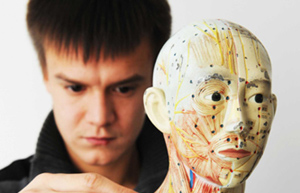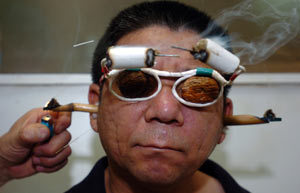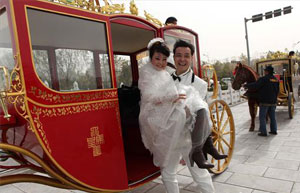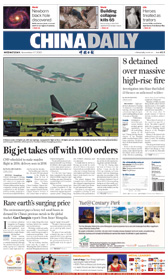Currency settlement benefits Sino-Russia traders
Updated: 2010-11-25 06:37
(Xinhua)
BEIJING- China and Russia will expand local currency settlements for bilateral trade, announced Chinese Premier Wen Jiabao and his Russian counterpart Vladimir Putin Tuesday, one day after the yuan started trading against Russian rouble on the Chinese interbank market.
| ||||
As China's energy needs would continue to grow quickly and with Russia's increasing appetite for manufactured goods, skipping the US dollar would benefit the burgeoning trade between the two countries, said Zhang Junsheng, director of Information Center with China National Institute of WTO affiliated to the University of International Business and Economics.
Zhang said direct trade between the countries began long before at China's border goods distributing centers. Local traders had largely accepted the Chinese yuan for bilateral trades because of their confidence in its stability and China's strong economy.
It was the first time China has ever officially cooperated with a big power on local currency settlement.
Yao Zhizhong, research fellow at the Chinese Academy of Social Sciences' World Economy and Politics Institute, said the move would immediately benefit local enterprises in the two countries. "Without exchange rate loss, they will see large reductions in trade costs, which will help China and Russia trade get back on track (to the pre-crisis level)," he said.
Although, there are concerns about China's ambitions to make the yuan into a global currency and the dollar's position. "The dollar's position in the international monetary system is too secure to rock," Zhang said.
According to Yao, the recent moves by China and Russia sent signals. One was that countries have begun to seek new channels to avoid domestic assets being devalued by outside risks, as the dollar-dominated international monetary settlement model exposed a number of problems during the 2008 financial crisis.
Meanwhile, it also signaled that emerging markets and countries were working closer and expected more mutual benefits while gradually steering away from cooperating with developed economies.
"However, the impact on the dollar is very small. How big a ripple can be made by a pebble in a large pool?" Yao said, adding that though China was the world's second largest economy, its economy was too fragile and its ambition for its currency too great.
China started to allow the yuan to trade against the Russian rouble at 4.671 from Monday and will soon see the yuan trade against the rouble in Russia in December.
The rouble is the seventh currency traded on China's Foreign Exchange Trade System after the introduction of the US and Hong Kong dollars, the euro, yen, British pound and Malaysian ringgit.
Bilateral trade between the two countries is estimated to reach above 50 billion US dollars by the end of 2010.
Paper's Digest

China bags Asiad team tennis title after 24 yrs
Wimbledon semifinalist Li Na led host China to capture the team tennis title on Tuesday at the Asian Games, accomplishing her Asiad tour with three consecutive victories.
China rate rises no panacea to curb inflation: PBOC adviser
Specials

Russian possessed with TCM
Born into a family of doctors, Maxime became interested in Traditional Chinese Medicine (TCM) at the age of 12, after hearing about TCM theories such as health preservation and recuperation.

Acupuncture takes stab at UNESCO list
Acupuncture and Peking Opera have been selected as candidates for UNESCO intangible cultural heritage status.

The wedding coach comes back to life
A groom carries his bride from a wedding coach in Xuchang, Henan province, Nov 11, 2010. Produced a local factory, various original hand-made wedding carriages were displayed on the streets, attracting young people chasing fashion and an environment-friendly lifestyle.



